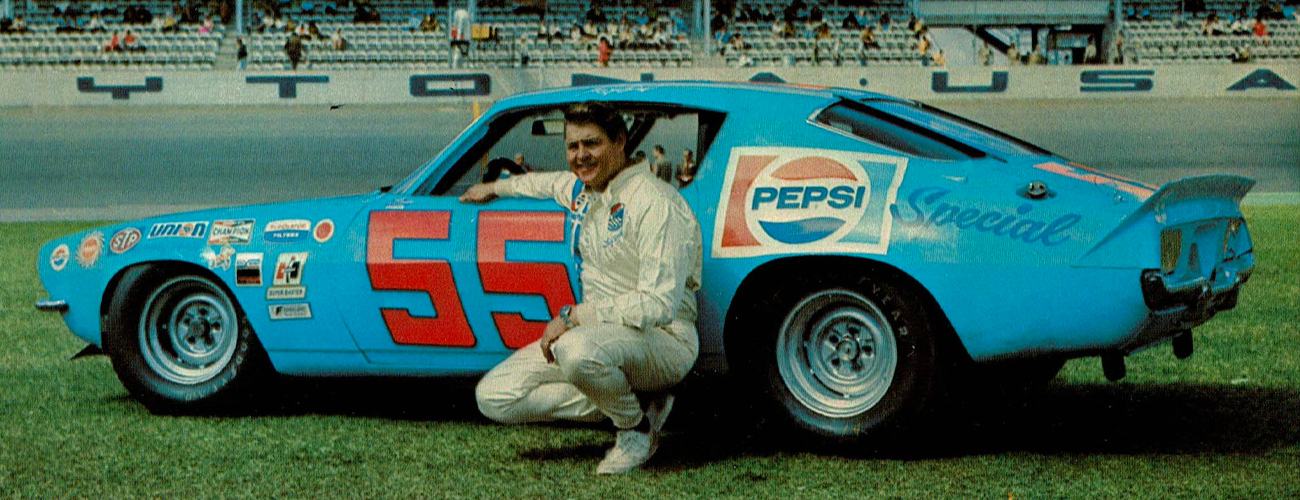
Two of the three manufacturers competing in the 2022 season of NASCAR’s prestigious Cup series are engaged in the recent incarnation of a classic battle. Started in 2019 when the Mustang GT began to represent the blue oval’s challenger on the circuit coming into the series one year after Chevrolet introduced the Camaro ZL1 likeness to NASCAR competition. For modern racing audiences, it was somewhat surreal seeing both cars in a series where larger vehicles over the years such as the Monte Carlo, Chevelle, Thunderbird and Dodge Charger. In reality, both the Camaro and Mustang entered the NASCAR Cup Series with winning records due to a short-lived period in the stock car racing series’ 74-year history.
In the mid to late 1960s, the pony car boom made its evitable impact in auto racing. The SCCA (Sports Car Club of America) enjoyed an explosion in popularity with the Trans-Am road racing series. Eager to cash in on the phenomenon, NASCAR was motivated to create their own version of a pony car battleground. Assembling it as the Grand Touring division in 1968, the new series would primarily be held on oval tracks. In addition to various short tracks, NASCAR’s inaugural Grand Touring schedule included stops at the 1.5-mile tracks of Charlotte Motor Speedway and Atlanta Motor Speedway as well as a 250-mile event at the sacred Darlington Raceway.
NASCAR’s Grand Touring division welcomed a crop of vehicles that differing from the heavier coupes that ran in the Cup series (known as the Grand National series at that time. Besides the appearance of smaller cars, the Grand Touring race vehicles featured lighter lower displacement engines. In addition to the Chevrolet Camaros and Ford Mustangs, vehicles that would take green flags in the first NASCAR Grand Touring season included the Mercury Cougar, Dodge Dart, AMC Javelin and even the Porsche 911 sports car.
The first race for the NASCAR Grand Touring series ran at North Carolina Motor Speedway on March 9th of 1968 with a Mercury piloted by 1963 Daytona 500 champion Tiny Lund taking the win after the 250-lap contest. The Bud Moore-owned Mercury Cougars was partially credited to the creation of the Grand Touring series when the team owner needed a new place to run the race cars after Ford no longer supported a Trans-Am series campaign. Driver Tiny Lund who would be a fixture in the Grand Touring series throughout its run becoming the year-end champion on three occasions.
In 1969, the Grand Touring series would gain notoriety when NASCAR visited the extremely fast Talladega Superspeedway for the first time. A large group of Cup drivers boycotted the Talladega 500 on race day due to concerns of tire failures leaving NASCAR to decide to allow Grand Touring cars (many had run a 400-mile event one day earlier) to fill out the field. Chevrolet Camaros, Ford Mustangs and the occasional Pontiac Firebird continued to compete in what was renamed by NASCAR as the Grand American series in 1970. Besides the events of the inaugural Talladega race, NASCAR ran into the potential of low car counts in their headlining Cup series in 1971 resorting to Grand American cars joining the field for six short track races. This action has resulted in modern contention relating to the official win record of NASCAR Hall of Fame inducted driver Bobby Allison. Taking advantage of the smaller dimensions and lighter weight of the Grand American machines, Allison drove a 1970 Ford Mustang at the Myers Brothers 250 at Bowman Gray Stadium in one of the combined events. While Bobby Allison is credited for winning 83 Cup races over his NASCAR career, the 1971 victory with a Grand American car did not count towards the tally.
The final races for the NASCAR Grand American series were held in 1972. Taking the first Grand Touring race in 1968, Tiny Lund won the last event for the Grand American series when he drove his Pontiac Firebird across the finish line at a road course staged on Talladega Superspeedway. In the five seasons of competition between pony cars, the series’ driver lineup featured appearances of past two-time NASCAR Cup champion Buck Baker, current championship car owner Richard Childress, famous car dealer Don Yenko as well as an up-and-coming Darrell Waltrip.
With 50 years passing since the demise of the Grand Touring/Grand American series, Chevrolet Camaro and Ford Mustang race cars are currently establishing new feats in NASCAR.
